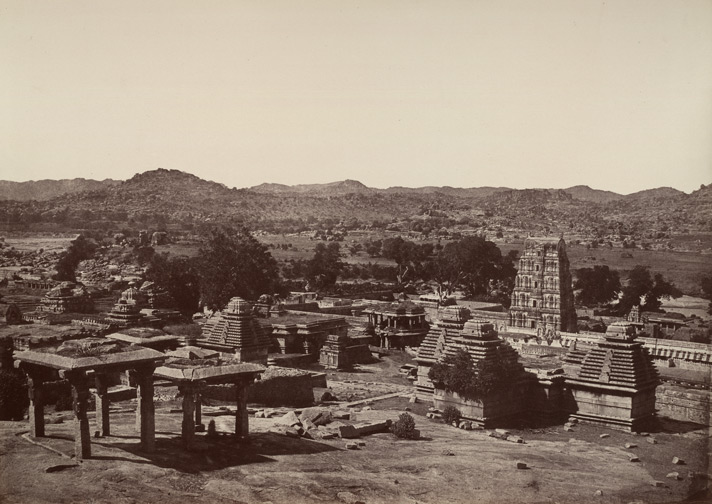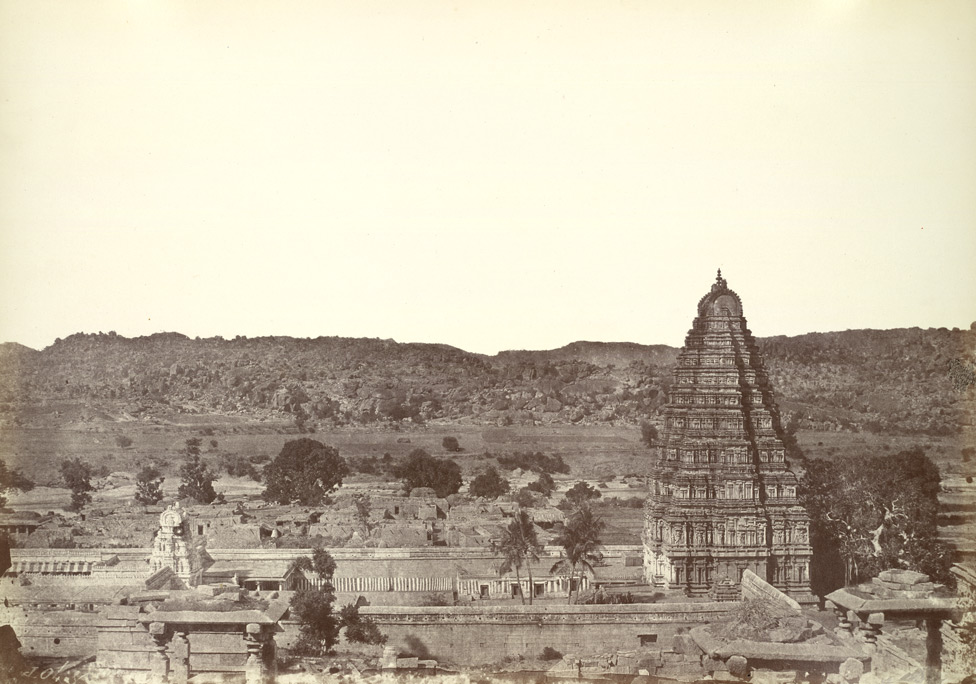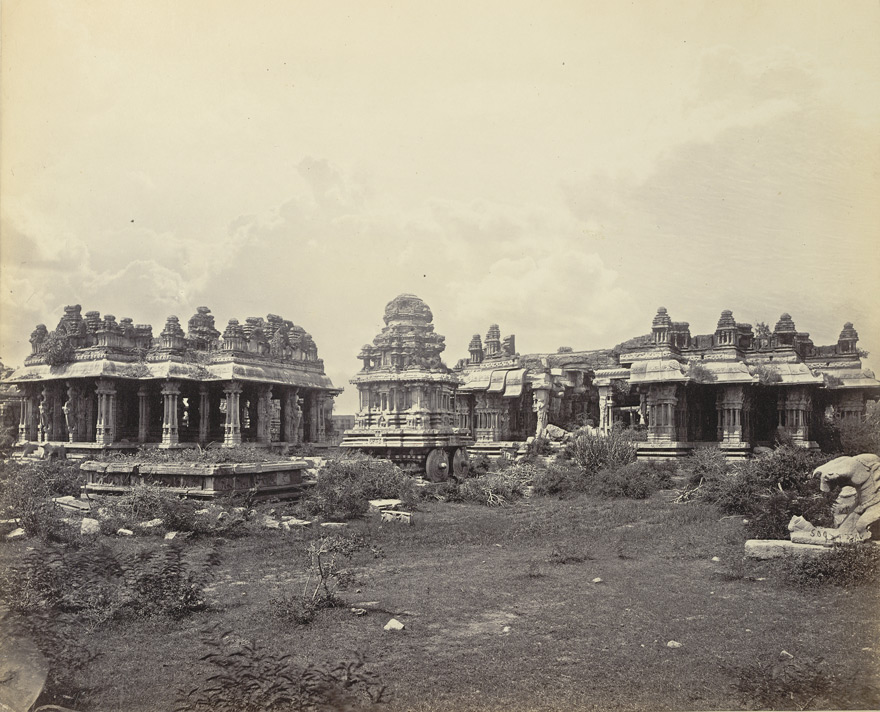Since early 1800s scholars and travellers from United Kingdom started arriving to Vijayanagara Hampi. Often they would document the architecture, art and general scenery using different sketching techniques and newly emerging photograph technology. From 1850 onwards we had a series of travellers visit Hampi and capture Hampi’s monuments on photographic plates and later on film. We have obtained some of these from the British Library Collection and sharing them for educational purpose on this website.


The original picture above is from the ASI collection of 1880 CE. Archaeological Survey of India (ASI) was established in 1861 by Alexander Cunningham who served as its first director general. He visited Vijayanagara in person around 1880 and documented the site extensively. So pictures attributed to ASI collections from 1880 are mostly credited to Alexander Cunningham himself.


The above photography was captured by Edmund David Lyon in 1868 CE. He was a professional photographer based in the hill station town of Ootacamund (Ooty), he travelled across South India extensively and captured valuable photographs. His collections have been even sold at prestigious auction houses such as Christie’s in London.


Above picture taken from the ASI collection of 1880 CE. Captured from the Ratha Beedi (Carstreet) from an easterly direction facing the main Gopura of the Virupaksha Temple Complex.




Above three pictures were taken by William Henry in 1857 CE, this was before the ASI was established. Not much has been known about William Henry apart from the fact that he is a British National.
As can be clearly seen in 19th century a vimana of brick & mortar existed on the famous stone chariot of Vittala Temple. Today you can find a picture of the stone chariot on your 50 rupee currency note.
Above picture was taken by Andrew Charles Brisbane Neill in 1856 CE. Neill was a medical officer in service of Madras Presidency and contributed several pictures to the collection “Architecture in Dharwar and Mysore”





The Above two pictures of the Urban Core was taken by Edmund David Lyon in the year 1868 CE.



